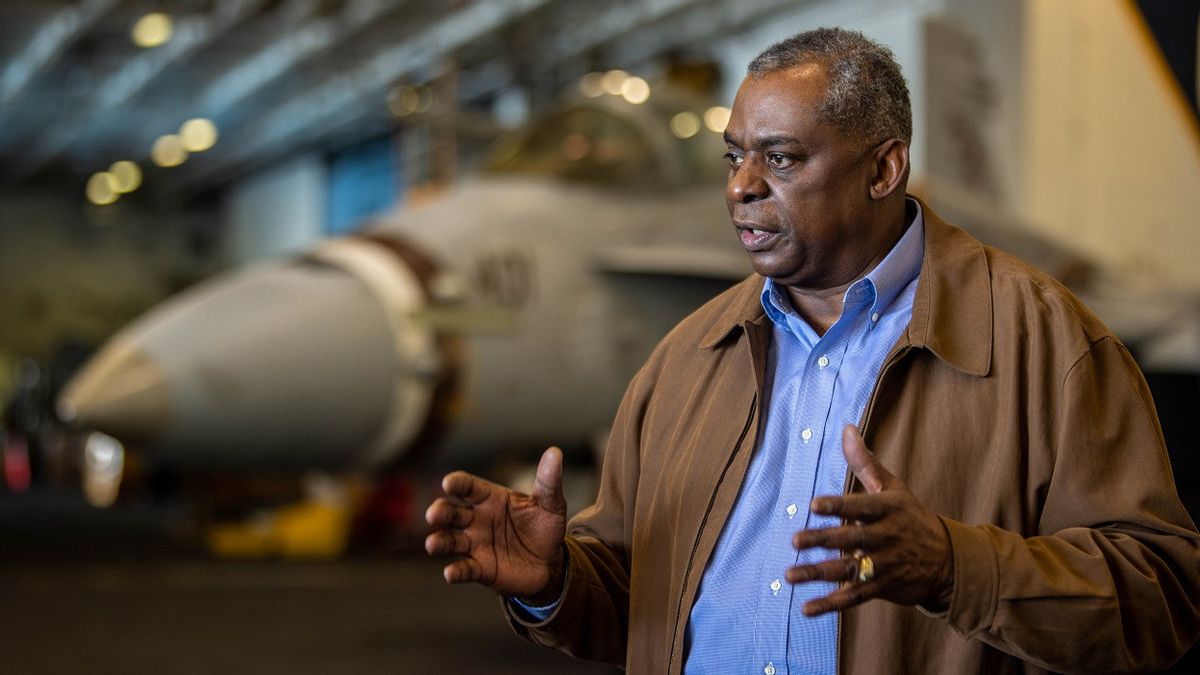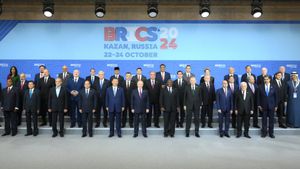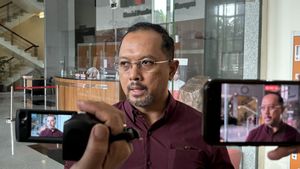US Secretary of Defense Lloyd Austin made a surprise trip to Iraq on Tuesday, nearly 20 years after the US-led invasion that toppled Saddam Hussein, said Washington was committed to maintaining its military presence in the country.
The 2003 invasion led to the deaths of tens of thousands of Iraqi civilians, creating an instability that eventually paved the way for the rise of ISIS militants after the US withdrew its troops in 2011.
Austin, the most senior official in President Joe Biden's administration to visit Iraq, was the last commander of US troops there after the invasion.
"US troops are ready to remain in Iraq at the Iraqi government's invitation," Austin told reporters after meeting with Iraqi Prime Minister Mohammed al-Sudani.
"The United States will continue to strengthen and expand our partnership in supporting Iraq's security, stability and sovereignty."
Meanwhile, Sudani's PM said in a statement that his government's approach was to maintain a balanced relationship with regional and international governments based on common interests and respect for sovereignty. That "Irak's stability is key to regional security and stability."
Wheels down in Baghdad. I’m here to reaffirm the U.S.-Iraq strategic partnership as we move toward a more secure, stable, and sovereign Iraq. pic.twitter.com/hJVJjefuyv
— Secretary of Defense Lloyd J. Austin III (@SecDef) March 7, 2023
The United States currently has 2,500 troops in Iraq and an additional 900 in Syria, to help advise and assist local forces in fighting ISIS, which in 2014 seized large parts of the region in both countries.
ISIS is far from the tough force it used to be, but militant cells have remained in parts of northern Iraq and northeastern Syria.
Austin's journey is also about supporting Sudan's efforts to counter Iran's influence in the country, former officials and experts said.
"I think Iraqi leaders have the same interests as us, so that Iraq does not become an arena for conflict between the United States and Iran," said a senior US defense official, speaking on condition of anonymity.
Secretary Austin met with Sudani PM and president of Iraq's Kurdistan Region, Nechirvan Barzani, amid a prolonged dispute over budget transfers and oil-sharing between the national government and Erbil, as well as a protracted dispute between the two main Kurdish parties running the semi-autonomous Kurdistan region.
On the same occasion, Secretary Austin also condemned Iran's "repetitive cross-border attack on Iraq.
Last year, Tehran fired missiles at a Kurdish group base in northern Iraq accused of involvement in protests against restrictions against women, displacing hundreds of Iranian Kurds and killing a number of people.
Austin, a former commander of all US troops in the Middle East, said in 2011 that the United States had achieved its military goals in Iraq.
The English, Chinese, Japanese, Arabic, and French versions are automatically generated by the AI. So there may still be inaccuracies in translating, please always see Indonesian as our main language. (system supported by DigitalSiber.id)













